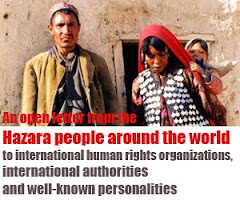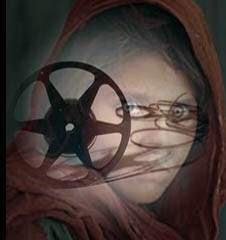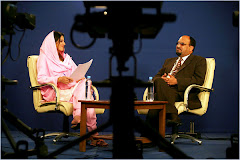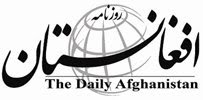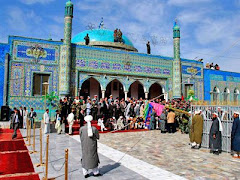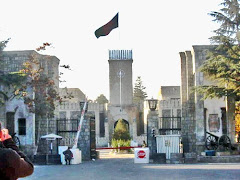
Hearing about the illegal detention, torture, and death sentence for blasphemy of Afghan journalist Parwiz Kasbakhsh by Mullahs in Mazar e Sharif of Balkh province in the north of Afghanistan, for an article discussing the treatment of women in the Holy Quran, I would like to comment.
First, why are these fundamentalists afraid of opinions, ideas, and discussions regarding religion?
A short review on the role of the Mullahs in the lives conservative Afghan society provides an answer.
Throughout the history of Afghanistan, Mullahs have proven to be a free-fed, luxury-loving and powerful people. They rule over a large illiterate, superstitious, ignorant segment of the population, and have done so for decades or even centuries.
It is obvious for almost every Afghan that Mullahs have always been the richest people. They do no hard physical labour. They misuse the wealth of people in the name of religion, the Prophet, and the Holy book.
Their power came by targeting the poorest groups, like farmers, poor labourers, and other low- income, uneducated people. These groups were satisfied just with something to eat on a daily basis-- and thanked God for that. Not knowing there were ways to achieve progress and improve their lives, they were content when the Mullah was content with them. They were also afraid of the curse of Allah, which the Mullah threatened would come, if they were disobedient to him. Their rule continued because there was no knowledge, except what the Mullah commanded, and no one dared say anything different. It is the same today.

To keep people ignorant and illiterate, the Mullahs forbid schooling. Mullahs forbid religious questions and discussion, because they are afraid of losing their power and wealth, gained from their religion, which is in reality the business of ruling over poor, illiterate and superstitious people.
During the monarchy, they discouraged people attending school by defaming the monarchical system. Later, they prohibited people attending schools by saying they were godless communist training centres. People thanked Allah that they did not become communist when they did not know the meaning of the word.
When the immigration and displacement of people from villages to towns and cities began in the late 1980s, the Mullahs tended to lose their power. In the cities, people went to schools where they had the opportunity to learn more than what the Mullahs told them. In the 1990s, in the chaos of civil war, the fighting parties were led mostly by Mullahs. Then people realized Mullahs stood for only power and wealth. They began to see the misbehaviour of Mullahs, so the mistrust and even hatred of Mullahs grew day by day. A very popular expression says: “Do what a Mullah Says but do not do what a Mullah Does!”
Now, if you ask even a young boy or a teenager about Mullahs, he can explain that a Mullah is different in reality, from what he tries to appear to be.

The new Mullaism?
This word may not exist, or better to say I made it up, after observing the situation in countries where fundamentalism is taking root again.
The recent tragedies in Pakistan, the re-empowerment of Mullaism and fundamentalism in Afghanistan, and the Mullaism in Iran show that the Mullahs are a larger force with greater purposes and bigger deals and incomes than a simple religion should have. It is unclear if they carry out their sinister plans by themselves, or if they are puppets played by others in the game of global politics. This must be considered, because Mullahs were well-used in the cold war of the 1970s- 1990s. The Americans and Saudis among others, financed them with billions of dollars in the battle against the USSR.
If you ask an Afghan what would happen if there were no fundamentalists?! The answer would be; “The world and especially Afghanistan would have been more peaceful and prosperous.
 The fundamentalists have their own followers produced in Taliban Factories called Madrassas in southern Afghanistan and northeastern Pakistan. They know nothing logically about Islam, they only follow their feeding leaders blindly, because most of them belong to poor families who have only chosen Madrassas as a way to feed their desperate families.
The fundamentalists have their own followers produced in Taliban Factories called Madrassas in southern Afghanistan and northeastern Pakistan. They know nothing logically about Islam, they only follow their feeding leaders blindly, because most of them belong to poor families who have only chosen Madrassas as a way to feed their desperate families.Most intellectuals in Afghanistan believe that Islam has existed for fourteen centuries with a good reputation, but the contemporary Muslim puppets (The Taliban) have demonstrated that their Islam is not the Islam of the Holy Quran. Islam will exist with or without the fundamentalists, but how nice it will be when all fundamentalists understand the truth and reality of Islam. This is possible but it needs time and effort and much sacrifice, and only if journalists and intellectuals like brave Parwiz Kambakh continue to reveal and discuss these issues.






